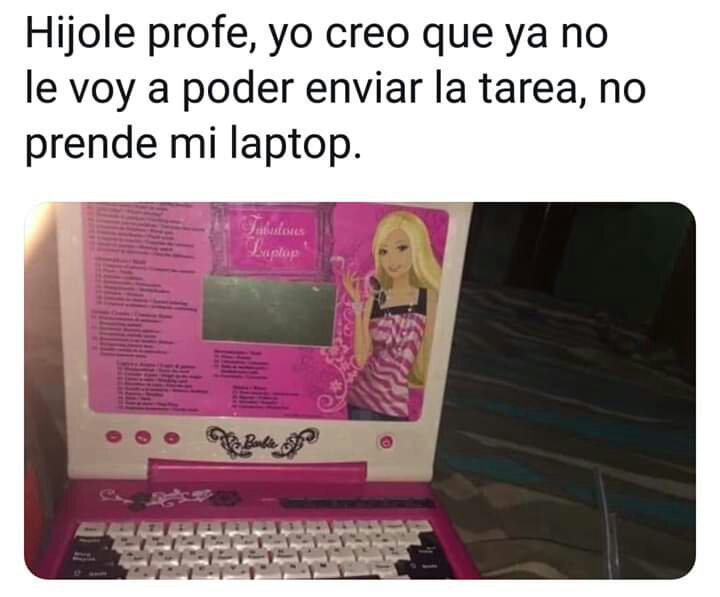Hijole Creo Que No Se Va A Poder: A Comprehensive Dive Into This Common Phrase
Hijole creo que no se va a poder is a phrase that has found its way into the daily lives of many Spanish-speaking individuals. Whether you're in Mexico, Spain, or any other Spanish-speaking country, this expression often surfaces during moments of uncertainty or frustration. This article will explore the nuances of this phrase, its cultural significance, and how it can reflect deeper human emotions and interactions. We'll also delve into real-life scenarios where the phrase has been used and analyze its implications in various contexts.
As we navigate through the complexities of language, it's important to understand the role phrases like "hijole creo que no se va a poder" play in communication. Often, such expressions are more than just words; they carry the weight of cultural identity and emotional expression. By dissecting this phrase, we aim to provide readers with a richer understanding of its meaning and usage, ensuring that it is not just seen as a casual remark but as a significant linguistic tool.
Throughout this article, we will explore the origins of the phrase, its cultural impact, and how it resonates with people across different regions. We will also examine potential alternatives and related expressions, offering insights into the versatility of language and the importance of context in communication. Let's embark on this journey to uncover the layers behind this seemingly simple phrase.
Read also:The Ultimate Guide To Theallierae Discovering The Best Of Lifestyle And Travel
What Does Hijole Creo Que No Se Va A Poder Mean?
At its core, the phrase "hijole creo que no se va a poder" translates to "oh my, I think it won't be possible" in English. It is often used in situations where someone feels overwhelmed or doubts the feasibility of a task or event. This phrase is deeply rooted in colloquial Spanish, making it a staple in casual conversations. Its usage reflects a blend of resignation and acknowledgment of limitations, making it a powerful expression of emotion.
Why Is This Phrase So Common In Everyday Conversations?
The prevalence of "hijole creo que no se va a poder" in daily interactions can be attributed to its ability to encapsulate complex emotions succinctly. People often use this phrase to express their concerns or doubts about an upcoming event or responsibility. It serves as a bridge between acknowledging challenges and accepting them, allowing for a more open dialogue about potential obstacles.
How Does Hijole Creo Que No Se Va A Poder Reflect Cultural Identity?
Language is a crucial component of cultural identity, and phrases like "hijole creo que no se va a poder" play a significant role in shaping how individuals perceive and interact with the world around them. This phrase, in particular, highlights the importance of humility and realism in many Spanish-speaking cultures. It emphasizes the value of recognizing one's limitations and adapting accordingly, traits that are celebrated in these communities.
Where Did The Phrase Originate?
While the exact origin of "hijole creo que no se va a poder" is unclear, linguists believe it emerged from the combination of regional slang and traditional Spanish expressions. Over time, its usage spread across different regions, adapting to local dialects and cultural nuances. Today, it is recognized as a universal expression of doubt and concern, transcending geographical boundaries.
Can The Meaning Of Hijole Creo Que No Se Va A Poder Vary Across Regions?
Indeed, the interpretation of this phrase can differ depending on the region. In some areas, it may carry a stronger sense of resignation, while in others, it might be used more humorously. These variations highlight the flexibility of language and how it evolves to meet the needs and expressions of different communities. Understanding these regional differences can enhance our appreciation of the phrase's versatility.
Is Hijole Creo Que No Se Va A Poder Used In Formal Settings?
Generally, this phrase is more suited for informal settings. However, in certain contexts, it can be used in professional environments to express genuine concerns or doubts about a project or task. Its informal nature does not diminish its effectiveness in conveying important messages, making it a valuable tool in both casual and semi-formal conversations.
Read also:How Tall Is Gordon Ramsay In Feet Discover The Truth About The Celebrity Chefs Height
What Are Some Alternatives To Hijole Creo Que No Se Va A Poder?
While "hijole creo que no se va a poder" is widely used, there are several alternatives that can convey similar sentiments. Some of these include:
- "Pues parece complicado"
- "Creo que vamos a tener problemas"
- "No veo cómo pueda funcionar"
Each of these alternatives offers a unique perspective on expressing doubt or concern, allowing individuals to choose the one that best fits their situation.
How Can Hijole Creo Que No Se Va A Poder Be Used Effectively In Communication?
To use this phrase effectively, it's essential to consider the context and audience. In situations where clarity and empathy are crucial, pairing "hijole creo que no se va a poder" with constructive suggestions can make the conversation more productive. For instance, instead of simply stating the phrase, one could follow it with potential solutions or compromises, fostering a collaborative approach to problem-solving.
Can Hijole Creo Que No Se Va A Poder Be Adapted For Written Communication?
Absolutely. In written communication, this phrase can be adapted to maintain its emotional impact while ensuring clarity. Whether in emails, social media posts, or formal documents, incorporating "hijole creo que no se va a poder" can add authenticity and relatability to the message. It serves as a reminder that even in written form, language can be personal and meaningful.
Why Is It Important To Understand Hijole Creo Que No Se Va A Poder In A Global Context?
As the world becomes increasingly interconnected, understanding cultural expressions like "hijole creo que no se va a poder" is vital for fostering global communication and empathy. By appreciating the nuances of language, we can bridge gaps between cultures and build stronger relationships. This phrase, in particular, offers a window into the values and attitudes of Spanish-speaking communities, making it an essential component of cross-cultural understanding.
Can Hijole Creo Que No Se Va A Poder Be Used To Encourage Problem-Solving?
Yes, when used appropriately, this phrase can serve as a catalyst for problem-solving. By acknowledging challenges upfront, individuals can approach situations with a more realistic mindset, paving the way for effective solutions. Encouraging open discussions about potential obstacles can lead to innovative strategies and improved outcomes, making this phrase a valuable tool in collaborative environments.
What Role Does Hijole Creo Que No Se Va A Poder Play In Modern Communication?
In today's fast-paced world, effective communication is more important than ever. Phrases like "hijole creo que no se va a poder" offer a balance between expressing concerns and maintaining positivity, ensuring that conversations remain productive and meaningful. By incorporating such expressions into our daily interactions, we can enhance our ability to connect with others on a deeper level.
Final Thoughts On Hijole Creo Que No Se Va A Poder
In conclusion, "hijole creo que no se va a poder" is more than just a phrase; it is a reflection of cultural values, emotional expression, and linguistic adaptability. By understanding its origins, usage, and significance, we can appreciate the depth and richness of language and its role in shaping our interactions. As we continue to explore the intricacies of communication, phrases like this will undoubtedly remain relevant, offering insights into the human experience and the power of words.
Table of Contents
- What Does Hijole Creo Que No Se Va A Poder Mean?
- Why Is This Phrase So Common In Everyday Conversations?
- How Does Hijole Creo Que No Se Va A Poder Reflect Cultural Identity?
- Where Did The Phrase Originate?
- Can The Meaning Of Hijole Creo Que No Se Va A Poder Vary Across Regions?
- Is Hijole Creo Que No Se Va A Poder Used In Formal Settings?
- What Are Some Alternatives To Hijole Creo Que No Se Va A Poder?
- How Can Hijole Creo Que No Se Va A Poder Be Used Effectively In Communication?
- Can Hijole Creo Que No Se Va A Poder Be Adapted For Written Communication?
- Why Is It Important To Understand Hijole Creo Que No Se Va A Poder In A Global Context?


